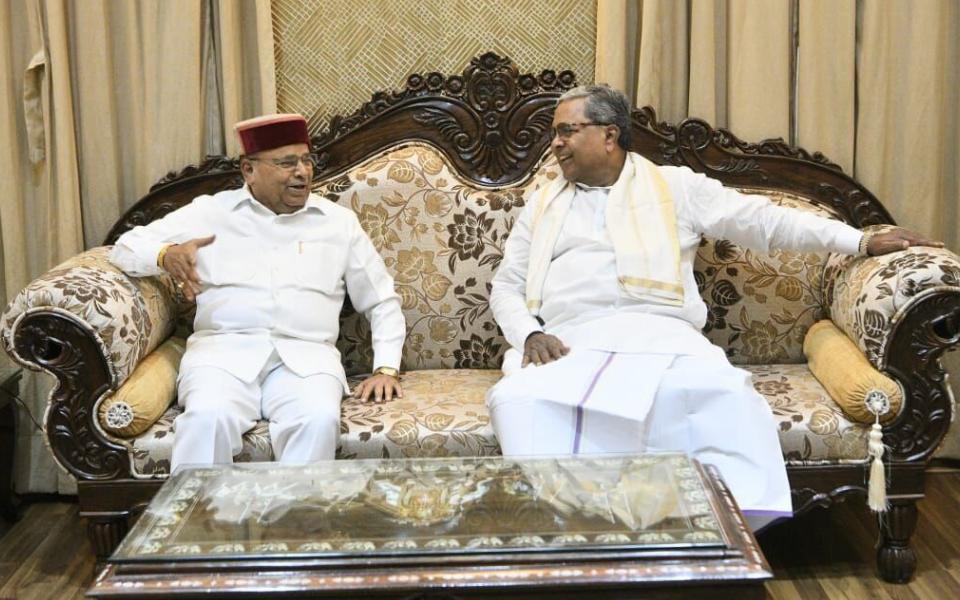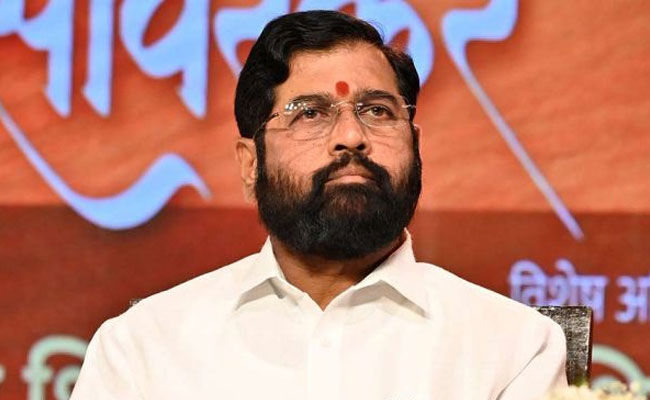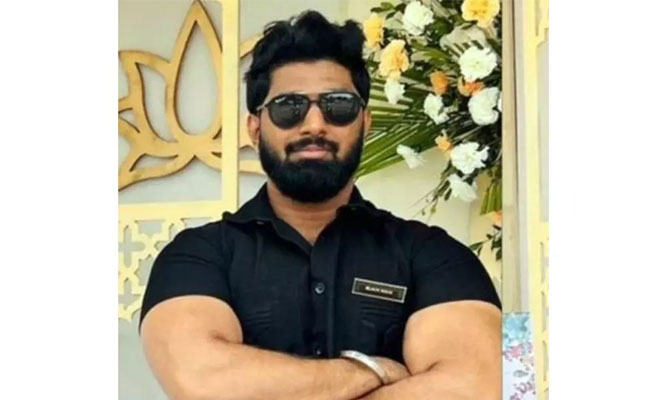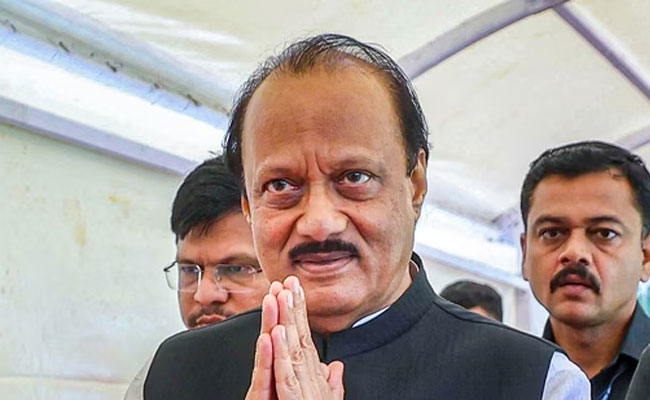Bengaluru, Mar 21: Seeking clarification, Karnataka Governor has sent back to the government a bill that sought to collect funds from temples with over Rs 10 lakh annual income, citing that a case concerning the earlier related act and amendments made to it is still pending in Supreme Court.
The Karnataka Hindu Religious Institutions and Charitable Endowments (Amendment) Bill, 2024, was passed by both Houses of the legislature on February 29.
The Governor Thaawarchand Gehlot has sought more clarification as to whether the amendment can be made during the pendency of the case, specifically when the entire Act has already been struck down by the High Court and case in appeal is at the stage of final hearing in the Supreme Court.
Further, has the state government conceptualised any legislation to encompass other religious bodies in similar fashion as this Bill, he has asked.
ALSO READ: “Freezing Cong’s bank accounts move to punish opposition,” Siddaramaiah’s jab at Centre
"Therefore, it is directed to return the file to the state government with a direction to re-submit the file with the clarifications," according to the Raj Bhavan.
Karnataka Muzrai Minister Ramalinga Reddy told PTI the Governor has sought some clarification and the clarification will be sent by the government.
"The Governor has asked whether the amendment can be made during the pendency of the case which is at the stage of final hearing at the Supreme Court; also it is asked whether the government has conceptualised any legislation to encompass other religious bodies like -- Bababudan Giri Datta peeta and one more such religious place, where two communities worship -- in similar fashion. It will be clarified," he added.
The bill was earlier defeated by a voice vote in the upper house, where the opposition has a majority, on February 23, after it was passed by the assembly on February 21.
Later the bill was reconsidered and passed by the legislative assembly once again on February 29, and it was sent to the legislative council and there too it got passed.
In the Council it was passed amid din, as opposition BJP and JD(S) members were protesting in the House against the government over the pro-Pakistan slogan issue, while in the Assembly it was passed when the opposition had staged a walkout on the same issue.
The Raj Bhavan said it is perused that the Karnataka Religious Institutions and Charitable Endowments Act 1997 and amendments made in the year 2011 and 2012 have been struck down by the High Court Dharwad Bench.
It is informed that the said High Court decision has been challenged in the Supreme Court and the apex Court has stayed the High Court Order, and the case is in the stage of final hearing, it noted.
The Muzrai department's amendment bill had created a huge controversy, as it angered the opposition, especially the BJP, which has claimed that the ruling Congress was trying to fill its "empty coffers" with temple money.
The Congress then sought to turn the tables on the saffron party, pointing out that it had effected an amendment in 2011 to seek funds from high-income Hindu shrines.
The bill among other things, proposes to collect five per cent from temples whose gross income is between Rs 10 lakh and less than Rs one crore and 10 per cent from temples whose income is above Rs one crore, to be put into a Common Pool Fund, administered by 'Rajya Dharmika Parishath', which is proposed to be used for Archakas' (priests) welfare and upkeep of 'C' category temples (state controlled) whose annual income is less than Rs five lakh.
The act that was earlier amended in 2011 had made way for five per cent of the net income of temples with annual income between Rs five lakh and Rs 10 lakh and 10 per cent of the net income of temples with annual income of over Rs 10 lakh to come into the fund.
'Muzrai' refers to grants made by the government for religious and charitable purposes as well as the upkeep of religious and charitable institutions, according to the Karnataka Government Gazetteer.
The department of Religious and Charitable Endowments is, hence, popularly known as the Muzrai department. It administers about 35,000 Hindu religious institutions which receive grants from the Government of Karnataka.
Let the Truth be known. If you read VB and like VB, please be a VB Supporter and Help us deliver the Truth to one and all.
Kolkata (PTI): BJP president Nitin Nabin on Wednesday launched a scathing attack on the TMC government in West Bengal, accusing it of protecting illegal infiltrators, targeting Hindus and playing “dirty politics” to derail the ongoing SIR of electoral rolls.
Nabin alleged that there was a deliberate attempt by the TMC to turn West Bengal into Bangladesh and claimed that while the Election Commission was determined to weed out infiltrators and fake voters, the ruling party was committed to protecting them.
“The TMC government wants West Bengal to merge with Bangladesh. Under its rule, the demography of the state is being changed, posing a threat to national security,” he said.
ALSO READ: Ajit Pawar's death: Shinde says he has lost 'elder brother'; plane crash will be probed
Dismissing the TMC’s allegation that the EC was harassing common people through the Special Intensive Revision (SIR) exercise, the BJP president said it was the state administration that was intimidating citizens to malign the poll panel.
“It is not the Election Commission that is harassing people. It is the TMC government’s SDOs and BDOs who are doing it to create fear and discredit the EC,” he alleged.
Nabin also accused the TMC government of being a protector of infiltrators and claimed that lawlessness had replaced governance in the state.
“Factories have been shut, and enterprises of corruption and lawlessness have been opened. Women are not safe under the TMC rule, and Hindus are being tortured,” he alleged.
Asserting that the BJP was fighting against what he described as the misrule of the TMC in West Bengal, Nabin said the party would continue efforts to curb infiltration, electoral manipulation and administrative intimidation in the state.





